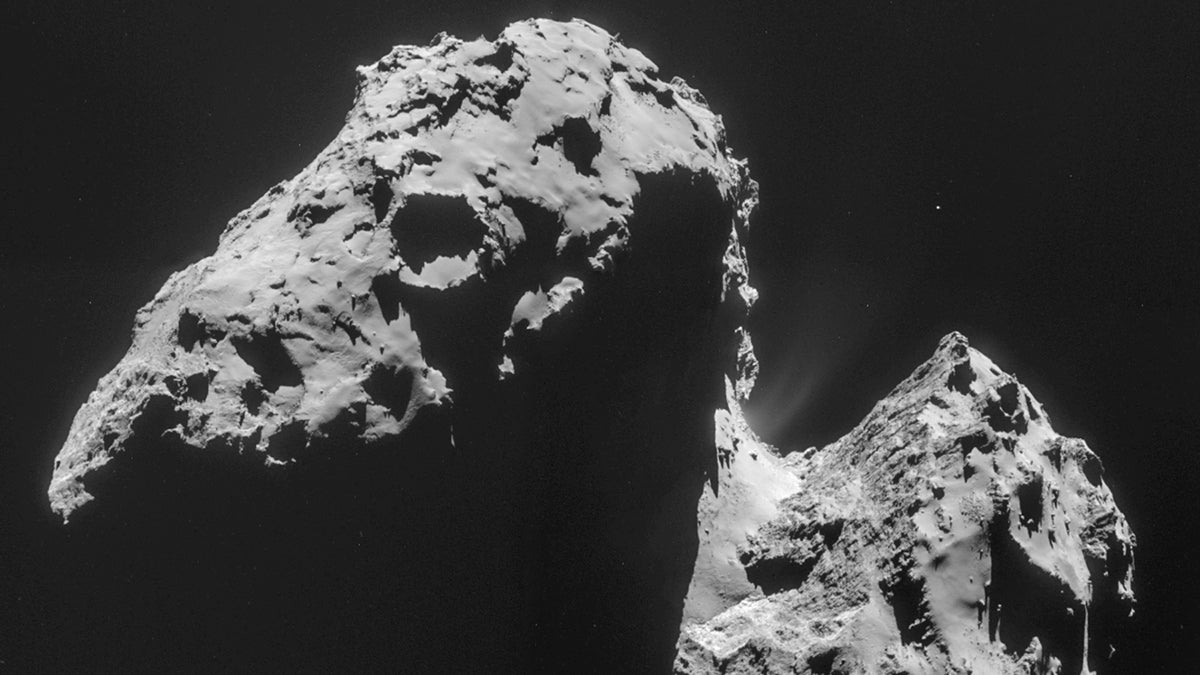Comet discovery closes door to theory of origin of Earth’s oceans
Listen
Comet 67P/Churyumov–Gerasimenko confirmed to space scientists that the discovery of the origin of Earth's oceans has yet to be positively identified. (AP Photo/ESA)
Many other doors remain open.
We might be getting a bit closer to answering one of the oldest questions in planetary science: Where did Earth’s oceans come from? So far, the leading theory involved a bombardment of comets almost four billion years ago that brought with them the water that now makes up our vast oceans.
But a recently released study raises some serious questions about the comet theory. The data came from the European Space Agency’s Rosetta Spacecraft, which is currently tracking comet 67P/Churyumov–Gerasimenko, an 1,100-foot-wide, boot-shaped hunk of ice and rock orbiting the sun once about every six and a half years.
Dr. Claudia Alexander of NASA is the project scientist for the U.S. Rosetta Project, and she joined Pulse host Maiken scott to discuss the findings.
“We were looking to measure a certain particle called dueterium,” said Alexander. It is this element that would confirm or scuttle the theory of comets hydrating Earth. And, as it turned out, Rosetta’s data cast a strong doubt that comets were our aquatic benefactors.
“We have some more thinking to do about where did Earth get its water and could Earth have brought out its own water?” said Alexander. The results got the scientists of the Rosetta mission to open their minds to the idea that Earth’s water may have come from a confluence of factors, including, the planet creating its own water, or asteroids bringing water, or even a massive ancient hydration event that may have wet Earth, Mars, and other celestial bodies.
Regardless of where Earth’s oceans originated, Alexander thinks 2015 will be a big year for Rosetta as well as the larger piecing together of bits of the story of the solar system. Her team plans to work in collaboration with the Dawn space probe’s arrival at asteroid Ceres and the New Horizons probe arriving at Pluto in 2015.
“Hopefully, all three of these missions will tell a complimentary story that will help us all learn more about the origins of our solar system,” said Alexander.
WHYY is your source for fact-based, in-depth journalism and information. As a nonprofit organization, we rely on financial support from readers like you. Please give today.



